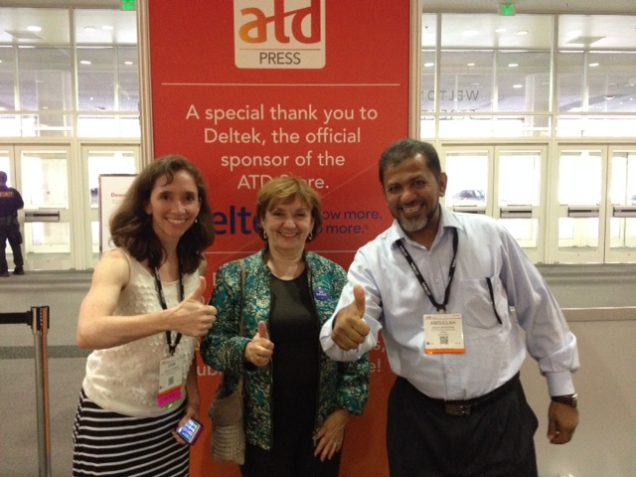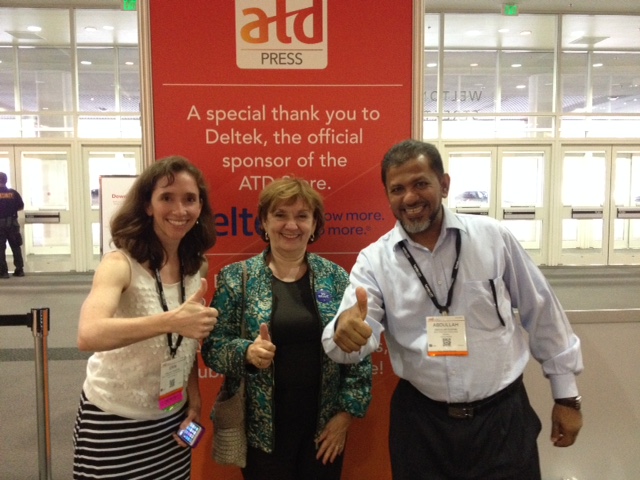We just returned from the ATD ICE.
What – you don’t know what ATD and ICE are? Did I just lose you? How about a translation?
We just attended the Association for Talent Development’s International Conference and Exposition. Lucky for us, it was right here in Denver, Colorado! There were 10,000 attendees who all knew or quickly learned what the acronyms ATD and ICE meant.
Isn’t it funny how every group has their own lingo? Each profession, industry, sport and organization has its own language, acronyms, and shorthand. Understanding and using this lingo helps to communicate ideas more quickly. It also shows a level of knowledge and competence. You are an insider and you know how to get things done.
Here’s an example of a common shortcut I heard at the conference: L & D. Now, acronyms can be particularly interesting. If you don’t yet know what they mean, all you have to go off of is a few letters. L & D. Hmm. Where have I heard those letters before?
In high school, I was on the speech team and competed in L-D. It’s short for Lincoln-Douglas debate, which is a form of one-on-one debating, as opposed to team debating.
Later in life, I heard people talking about LD again, except this time it meant something different. They were talking about kids and adults who were struggling with learning disabilities.
Then, I found myself at this international conference coming face-to-face with the letters L and D again. Yet, clearly they weren’t referring to Lincoln-Douglas debates or learning disabilities.
No, the meaning for this group of people was Learning and Development. Of course! That made perfect sense for the topics in which this group would be interested. I even sat next to a very nice fellow who was the Director of Learning and Development for the Ministry of Foreign Affairs in another country. I’ll bet he was doing L & D for his employees in many countries around the world. How cool is that?
Using industry-specific words and language will sound simply like terminology to you and those in your industry, but it may sound like jargon or even mumbo-jumbo to those outside of it. Don’t fall into the trap of thinking that everyone already knows!
That’s why it’s important to think about your audience. Are they insiders, outsiders or a mix? If they’re not all insiders, then it can be easy to lose them while they’re busy trying to figure out what the heck you just said.
When doing public speaking, it’s your job to take a little time to become aware of your shorthand and then translate it. Spelling out acronyms and sharing definitions can help those new to your group bridge the gap between your level of knowledge and theirs. Bring everyone along and you will be rewarded by an audience that is really engaged.



2 Comments